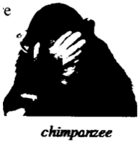题目内容
16.When several people look at the same person,it is not unusual for each of them to see different things; when you are alone observing one behavior or a person at two different times,you may see different things.The followings are but some of the factors that lead to these varying perceptions(感知,认识):(1)Each person's perceptions of others are formed by his or her own cultural conditioning,education,and personal experiences.
(2)Sometimes perceptions differ because of what we choose to observe and how we deal with what've observed.It is not necessarily true that person perception is based on observations of a particular person.Your observations may be totally controlled by what others have told you about this person; or you may focus primarily on the situation or role relationship.Most people do not use the same standard to measure their parents,their friends,and strangers.
(3)Sometimes we see only what we want to see or don't see what may be obvious to others because of our own needs,desires,or temporary emotional states.This is a process known as selective perception.Selective perception is obviously more difficult when contradictory information is particularly obvious,but it can be done.We can ignore the stimulus-"He's basically a good boy so what I saw was not shoplifting(入店行窃)."We can reduce the importance of the contradictory information-"All kids get into mischief(顽皮).Taking a book from a bookstore isn't such a big deal."We can change the meaning of the contradictory information-"It wasn't shoplifting because he was going to pay for it later."
51.The first factor given by the author that affects our perception isB.
A.our hearing and visual abilities
B.cultural background and personal experiences
C.the experience one learns from others
D.critical measures taken by other people
52.While observing a particular person,D.
A.one is likely to take all aspects into consideration
B.one pays more attention to his/her advantages
C.children often differ from grown-ups in perception
D.one tends to choose certain aspects to look at
53.Observation of the same person by two people at the same time may differ becauseA.
A.they follow different standards
B.either of them may be slow to catch information
C.the time for observation is not long enough
D.each of them uses different language to express his/her impressions
54.The underlined word"stimulus"in Paragraph 4refers toC.
A.something attractive
B.selective perception
C.contradictory information
D.shoplifting
55.The worst thing in selective perception is thatB.
A.the information received runs against your desire
B.facts can be twisted or totally ignored
C.importance of the contradictory information can be overrated (估计过高)
D.misbehaved children may not be punished.
分析 本文属于记叙文阅读,主要向我们讲述了几个人看同样的人会有不一样的感觉,同一个人在不同的时候看同一件事情也会不同,这是因为一些因素影响人们的认知.
解答 51.B 细节理解题:从第一段的句子:Each person's perceptions of others are formed by his or her own cultural conditioning,education,and personal experiences.可知第一个影响人的认知的因素是我们的文化背景和个人经历.故选B.
52.D 细节理解题:从文章第三段的句子:It is not necessarily true that person perception is based on observations of a particular person.Your observations may be totally controlled by what others have told you about this person; or you may focus primarily on the situation or role relationship.可知当观察一个特定的人,一个人往往会选择从某些方面去看.故选D.
53.A 细节理解题:依据句子"Most people do not use the same yardstick(尺码) to measure their parents,their friends,and strangers."可知同样的人同时被两个人观察可能不一样,因为他们使用的是不同的标准,故选A.
54.C 词义猜测题:从文章第四段的句子:Selective perception is obviously more difficult when contradictory information is particularly obvious,but it can be done.可知当矛盾信息显而易见的时候,选择性认知很显然更难,故选C.
55.B 细节理解题:从文章第四段的句子:We can ignore the stimulus--"He's basically a good boy so what I saw was not shoplifting(入店行窃)."We can reduce the importance of the contradictory information可知选择性认知最坏的事情是事实被扭曲或完全忽视.故选B.
点评 做阅读理解时要快速的浏览全文,把握文章主旨大意,带着问题回到原文,寻找细节或概括相应的答案,最后要理清作者写作思路.

 口算题卡北京妇女儿童出版社系列答案
口算题卡北京妇女儿童出版社系列答案| A. | considered | B. | considering | ||
| C. | consider | D. | to be considered |
-No,she ___ there for only ten years.Now she has moved to Wisconsin.( )
| A. | lived | B. | has lived | C. | had lived | D. | has been living |
 Most people agree that honesty is a good thing.But does Mother Nature agree?Animals can't talk,but can they lie in other ways?Can they lie with their bodies and behavior?Animal experts may not call it lying,but they do agree that many animals,from birds to chimpanzees,behave dishonestly to fool other animals.Why?Dishonesty often helps them survive.
Most people agree that honesty is a good thing.But does Mother Nature agree?Animals can't talk,but can they lie in other ways?Can they lie with their bodies and behavior?Animal experts may not call it lying,but they do agree that many animals,from birds to chimpanzees,behave dishonestly to fool other animals.Why?Dishonesty often helps them survive. On this fine winter day,when much of the country is freezing,I know I shouldn't complain.I live in the Mojave Desert on a hill overlooking Las Vegas,so I can sit outside,feel the sun on my face and not feel cold.But I'm just going to say it:I am tired of winter.Around this time of year,I always look forward to spring.
On this fine winter day,when much of the country is freezing,I know I shouldn't complain.I live in the Mojave Desert on a hill overlooking Las Vegas,so I can sit outside,feel the sun on my face and not feel cold.But I'm just going to say it:I am tired of winter.Around this time of year,I always look forward to spring.